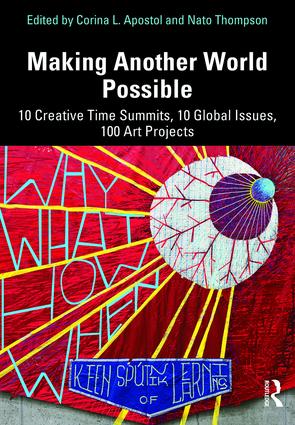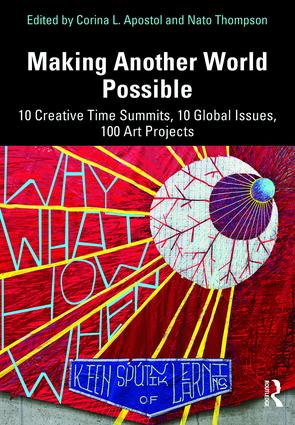Making Another World Possible I Conversations Series. Exodus
ruum A 501

“Making Another World Possible Conversations Series” presents engaging discussions on topics concerning the Estonian context and the global cultural art scene. Prominent speakers will include international artists, curators, collectors, educators, activists, and other cultural practitioners, shedding critical light on topical issues. All conversations will take place at The Estonian Academy of Arts.
The Conversation Series is programmed as a preamble to the book Making Another World Possible : 10 Creative Time Summits, 10 Global Issues, 100 Art Projects (Routledge, 2019) edited by Corina L. Apostol and Nato Thompson and produced by Creative Time, a landmark publication which takes stock of socially engaged cultural practices dealing with the urgency of contemporary social movements. Complete with a selected timeline of socially engaged art by the collective Chto Delat, the book offers a review of the current state of the field, a dive into ten global issues through commissioned essays, and showcases one hundred inspiring artistic projects from around the world.
06.11 – Exodus
Participants: Airi Triisberg, Bita Razavi, Morten Goll, Tanja Muravskaja
The frequent use of the word “flood” to characterize the mass migration from Syria, Afghanistan, Iraq, and N Africa to Western countries imbues the event with a sense of loss of fear. What message do we get from the images of the crises? This conversation will highlight cultural projects that engage with the marginalization of groups outside the dominant classes, (anti)immigration rhetoric and policies, debates about citizenship and borders, and the fate of those displaced by ecological disasters.
Airi Triisberg is an independent curator, writer, and educator based in Tallinn. She is interested in the overlapping fields between political activism and contemporary art practices, issues related to gender and sexualities, illness/health and dis/abilities, self-organization and collective care practices, struggles against precarious working conditions.
Bita Razavi is an artist born in Tehran, who lives and works between Helsinki and Tartu, Estonia. Bita’s practice is centered around reflections on everyday situations and is highly influenced by where she is based at the time. She examines the inner workings of social systems in relation to the political structures and national events in various countries.
Artist Morten Goll is the Director and co-founder of Trampoline House: Copenhagen Refugee Community, an independent community center in Copenhagen that provides refugees and asylum seekers in Denmark with a place of support, community, and purpose.
Tanja Muravskaja is a Tallinn-based photographer, mainly working in portraiture. In her work, she explores the issue of Estonian nationalism and the emergence of neo-nationalism after the Singing Revolution. The artist strives to analyze and understand the new Estonian identity in a country with a heterogeneous ethnic make-up.



